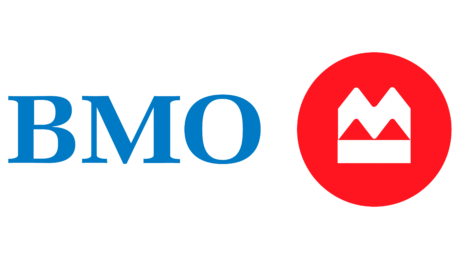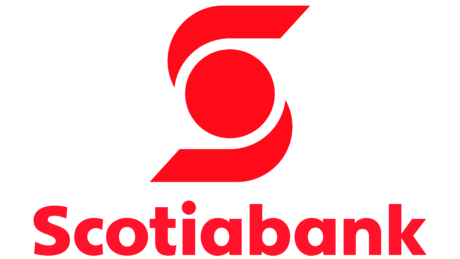Nerdy Insight: Variable mortgage rates remain elevated and unpopular as we head into September. The Bank of Canada’s next overnight rate decision, scheduled for September 6, will likely result in variable rates staying where they are — well north of 6% in many cases.
Mortgage Type
Purchase Price
Down Payment
Rate Type
Province
Mortgage Term
Lender |
Lender Highlights |
Rate |
Payment |
Term |
|
|---|---|---|---|---|---|

Equitable Bank |
|
6.10%
Variable |
$2,927
Monthly |
5 yrs.
Term |
Explore Now |

Radius Financial |
|
6.15%
Variable |
$2,941
Monthly |
3 yrs.
Term |
Explore Now |

MCAN |
|
6.20%
Variable |
$2,955
Monthly |
5 yrs.
Term |
Explore Now |

Radius Financial |
|
6.20%
Variable |
$2,955
Monthly |
5 yrs.
Term |
Explore Now |

Equitable Bank |
|
6.30%
Variable |
$2,982
Monthly |
5 yrs.
Term |
Explore Now |

First National |
|
6.30%
Variable |
$2,982
Monthly |
5 yrs.
Term |
Explore Now |
Disclaimer: These rates do not include taxes, fees, and insurance. Your actual rate and loan terms will be determined by the partner’s assessment of your creditworthiness and other factors. Any potential savings figures are estimates based on the information provided by you and our advertising partners. Mortgage Brokerage Licensed in ON #12984, BC #X301004, MB and AB. Homewise can pursue mortgage brokering activity in SK, NL, NS and NB.
Data source:


Best mortgage rates
Find the best mortgage rates in Canada.
Compare customized mortgage rates from Canada’s best lenders and brokers for free – all in one place
Variable and fixed mortgage rates at Canada’s Big 6 banks
Rates updated September 15, 2023.
| Lender | 3-year fixed rate | 5-year fixed rate | 5-year variable rate (closed) | 5-year variable rate (open) | Prime rate |
|---|---|---|---|---|---|
| TD Bank | 6.94% | 6.84% | 6.97% | 8.37% | 7.35% |
| BMO | 7.08% | 6.91% | 7.22% | N/A | 7.20% |
| RBC | 7.14% | 6.97% | 7.23% | 10.53% | 7.20% |
| Scotiabank | 7.04% | 6.84% | 7.65% | 10.40% | 7.20% |
| CIBC | 6.94% | 6.79% | 7.20% | 10.50% | 7.20% |
| National Bank of Canada | 7.09% | 6.88% | 7.24% | N/A | 7.20% |
Posted rates for closed mortgages with amortization under 25 years. Data source: Canada’s major banks
Canadian variable mortgage rate update: September 2023
Even though the Bank of Canada held its overnight rate at 5% on September 6, variable mortgage rates remain pinned to the clouds in September. Since March 2022, variable-rate mortgage holders have seen their rates rise 10 times — and 475 basis points. While most buyers have steered clear of variable rates this year, homeowners locked into variable-rate mortgages don’t necessarily have that option.
The Bank of Canada’s next overnight rate decision is scheduled for October 25, 2023. With the economy sputtering, it’s unlikely that the Bank will increase the overnight rate. Considering that inflation rose from June to July, it’s equally unlikely that the overnight rate will be reduced any time soon. It could be 2024 before the Bank of Canada decides to adjust the overnight rate, and when it does, expect a minimal decline.
The Financial Consumer Agency of Canada recently released a set of new guidelines for the country’s mortgage lenders to follow when dealing with borrowers whose finances have been pushed to the breaking point by higher interest rates. If you’re having trouble making your mortgage payments, or are having to make uncomfortable decisions to stay on top of your mortgage, reach out to your lender or mortgage broker immediately to find out what assistance or payment flexibility might be available to you.
Calculators to inform your next mortgage decision
Mortgage payment calculator ↗
Estimate your monthly mortgage payments.
Mortgage affordability calculator ↗
Estimate how much house you can afford.
Mortgage closing costs calculator ↗
Create a home buying budget by estimating your closing costs.
Our guide to variable mortgage rates in Canada
Variable mortgage rates: Facts and data
Unlike fixed mortgage rates, which don’t change for the entirety of a mortgage term, variable rates can rise or fall several times between when you first get your mortgage and when you renew it. That means a variable-rate mortgage can end up being more or less expensive than you originally anticipated.
That uncertainty creates risk for borrowers, which is why variable mortgage rates have typically been lower than fixed rates. In times of high inflation, however, variable rates can surge past fixed rates.
When variable rates were at historic lows during the COVID-19 pandemic, the demand for variable-rate mortgages skyrocketed. Variable-rate mortgages accounted for over half of the home loans originated by Canadian lenders from August through April 2021. In January 2023, after variable rates had risen 400 basis points in the previous 10 months, variable-rate mortgages made up less than 20% of new mortgages.
From January to May 2022, Canadians took out an average of $2.4 billion in insured variable-rate mortgages each month. From January to May 2023, that figure plummeted to $295 million per month as buyers abandoned variable rates for lower, more stable fixed rates.
Variable mortgage rate forecast
2023
Don’t expect variable mortgage rates to decline much in the final months of 2023.
The Bank of Canada is expected to hold its overnight rate at 5% in September as it continues to assess its battle with inflation and track the overall state of the economy. Until the overnight rate is reduced significantly, variable rates will stay elevated.
After September, the Bank of Canada only has two more rate decisions scheduled for 2023. Unless inflation takes a miraculous freefall, the Bank is unlikely to touch the overnight rate before next year.
2024
Variable rates could remain high for much of 2024, too.
The Bank of Canada has said that it expects inflation to be back in the 2-3% range by mid-2025. If a reliable downward trend in inflation occurs in 2024, and the Bank is confident that reducing the overnight rate won’t lead to inflation rising again, you might see variable rates come down in the second half of 2024.
How are variable mortgage rates determined?
Variable mortgage rates are shaped by three factors: the Bank of Canada’s overnight rate, a lender’s prime rate and your unique financial situation.
The overnight rate
The Bank of Canada’s overnight rate is the interest rate banks use when they loan money to each other during daily banking operations. The Bank also uses the overnight rate to guide the economy and tamp down inflation.
If inflation is rising, the Bank of Canada will increase the overnight rate in an attempt to slow the economy. If the economy is lagging, the overnight rate is lowered to encourage borrowing and spending.
Canada’s large banks also use the overnight rate to determine their prime rates.
Prime rate
A bank’s prime rate is the interest rate it offers their most important customers. It’s also used as a base for the interest rates a financial institution attaches to variable-rate mortgages and lines of credit.
The relationship between the overnight rate and prime rate is important if you have a variable-rate mortgage. When the Bank of Canada ups the overnight rate, variable mortgage rates also increase.
Your financial situation
While the Bank of Canada plays a role in how high or low variable mortgage rates are, the actual rate
you’ll be offered depends on your overall financial situation, primarily:
- Your credit score. The higher your credit score, the less risk you pose as a borrower. Lenders are typically more willing to offer lower rates to borrowers who they believe will pay them back in full.
- Your debt levels. If you’re carrying a heavy debt load, lenders may question your ability to pay them back. That may result in them offering you a higher interest rate.
- Your income and job stability. The higher and more predictable your income is, the easier it is for lenders to offer you a lower variable interest rate on your mortgage.
What’s a good variable mortgage rate?
Short answer: A “good” variable mortgage rate is the lowest rate you can qualify for on the specific loan product that best fits your finances.
If you’re curious about how variable rates have been trending, take a look at the following Statistics Canada data from the past 10 years, which tracks the average variable mortgage rate on insured mortgages:
- June 2013: 3.49%.
- June 2014: 2.88%.
- June 2015: 2.56%.
- June 2016: 2.92%.
- June 2017: 2.49%.
- June 2018: 2.70%
- June 2019: 3.99%.
- June 2020: 2.43%.
- June 2021: 1.57%.
- June 2022: 3.10%.
- June 2023: 7.33%.
If you were comparing variable mortgage rates in June 2019, you may have decided that even your best options weren’t all that attractive. But compared to where variable rates are in 2023, those 2019 rates look pretty good.
Predicting variable mortgage rates
If you want to get a sense of where variable mortgage rates might be heading, keep an eye on Canada’s inflation rate.
If inflation is trending upward, or the Bank of Canada says it is concerned that inflation may increase, you can generally expect the Bank to raise its overnight rate. When that happens, variable mortgage rates also increase. If inflation is declining, the Bank may choose to lower the overnight rate, which will result in lower variable rates.
The economy can be a tricky thing to read, and forecasts are frequently wrong, so never assume you know exactly where rates are heading.
Is a variable-rate mortgage right for you?
Variable-rate mortgages are a bit of a gamble. Your rate might decline during the term, but it might also increase sharply. You shouldn’t, however, focus solely on the rate when considering a variable-rate mortgage. Keep the following in mind, too:
- Portability. If you sell your home and buy a new one during your mortgage term, your lender may allow you to port your current mortgage to your new property. This can allow you to break your mortgage without paying penalties. If you have a variable-rate mortgage, you might only be able to port if you convert it to a fixed rate first.
- Prepayment options. Double-check the conditions of any variable-rate mortgage offer to see how much you can increase your monthly payment or how large a lump-sum payment you can make as a way of paying off your mortgage faster.
- Penalties. Breaking or prepaying too much of a variable-rate mortgage can result in prepayment penalties equal to three months’ interest. Make sure you understand how much you might have to pay if you break your mortgage unexpectedly.
Another aspect of variable mortgage rates to consider is whether you choose a fixed or variable payment option.
With a fixed-payment variable-rate mortgage, the size of your mortgage payment doesn’t change when your rate is adjusted. Instead, the percentage of your payment that goes toward interest either increases or decreases, which also affects how much is applied to the principal.
With a variable-payment variable-rate mortgage, the actual amount of your monthly mortgage payment can rise or fall, making this mortgage type particularly risky in a rising-rate environment.
Pros and cons of variable-rate mortgages
Pros:
- Lower rates. Historically, variable rates have been lower than fixed mortgage rates.
- Lower prepayment penalties. Compared to fixed-rate mortgages, variable–rate mortgages charge lower penalties if you prepay too much of your mortgage or break your mortgage contract in some other way.
- Switchability. If variable mortgage rates are rising and you’re afraid of being able to maintain your payment schedule, you may be able to switch to a fixed rate of interest for the remainder of your mortgage term.
Cons:
- Unpredictability. If variable mortgage rates spike, your mortgage could become unaffordable.
- Smaller prepayment penalties still sting. If you have to break a variable-rate mortgage because of financial difficulties, paying a penalty equal to three months’ interest could be painful.
- No portability. Your lender may not allow you to port a variable-rate mortgage unless you convert it to a fixed-rate mortgage. When making the switch, you’ll be subject to your lender’s current mortgage rates, which may be higher than you can afford.
How to find the best variable-rate mortgage
When choosing a variable-rate mortgage product, the interest rate is just one factor. There are other aspects you need to consider before deciding on the final make-up of your mortgage.
Amortization length
Amortization refers to the total amount of time it will take you to pay off your mortgage in full. In Canada, the longest amortization you can secure with a down payment of less than 20% is 25 years. With a down payment greater than 20%, you can secure an amortization of up to 35 years.
You also can opt for the shortest amortization period you can afford. Your monthly payments will be higher, but you’ll pay less interest overall and potentially save thousands of dollars.
Fees
Some fees, like home appraisal costs, will be in play no matter which lender you apply with. But some, like B lenders and private lenders, may charge a host of other fees that could increase the cost of your mortgage significantly.
It’s critical that you have a discussion with your lender or mortgage broker about fees and costs early in the mortgage application process. Doing so will give you more information to work with when comparing different mortgages.
Prepayment penalties
Prepayment penalties are fees that may be incurred if you pay off too much of your mortgage ahead of schedule. They are an important consideration, especially if you think you may have to move or sell your home before the end of your mortgage term.
How prepayment penalties are calculated depends on your specific lender and mortgage contract. For variable-rate mortgages, the penalty charge is usually three months’ interest on the prepayment amount.
Open or closed?
With a closed mortgage, your contract terms are set for the duration of your mortgage term. Making changes to your payment schedule could mean breaking your mortgage contract and paying penalties.
Open mortgages allow borrowers a little more flexibility in how they pay back their loans. With an open mortgage, you can increase your payment frequency and make lump-sum payments without being charged any prepayment penalties. The interest rates on open mortgages tend to be higher than those attached to closed mortgages.
What happens when a variable mortgage term ends?
Your mortgage term is how long your current mortgage contract lasts. Most variable-rate mortgages in Canada have five-year terms.
As the end of term approaches, you’ll have several options: renew, refinance or replace.
If you elect to renew your mortgage, your lender will send you a renewal statement that contains details of your renewed contract, such as the term and interest rate. If all looks good, you simply sign the document and your mortgage will continue on seamlessly.
But if you’re not entirely happy with the new mortgage contract — maybe you want a lower interest rate or a shorter amortization period — you could try to refinance your agreement to get more favourable terms.
You also have the option of comparing current mortgage rates and going with a new lender. While you might get a better rate with a new lender, keep in mind that there may be additional costs, such as setup and appraisal fees.
How to get the lowest variable mortgage rate
Though lenders may have different mortgage qualification criteria, there are other reliable ways to qualify for the lowest mortgage rate.
Boost your credit score
The best mortgage rates generally go to creditworthy borrowers, meaning those with a solid credit score of 680 and higher. Lenders perceive borrowers with high credit scores as lower risk.
You’re still likely to be considered for a mortgage with a score of 600 and above, you just may not necessarily be offered the best rates.
Maintain low debt service ratios
Lenders will take a careful look at two debt service ratios when deciding whether or not to give someone a mortgage with the best rates: Gross Debt Service (GDS) and Total Debt Service (TDS) ratios.
Your GDS ratio is what percent of your pre-tax household income goes towards housing costs like your mortgage payments, utilities and property taxes. It should not exceed 39% of your yearly gross income.
Your TDS ratio includes your GDS, as well as any other debts you are carrying (like student loans and credit card debt). Your TDS ratio should not be more than 44% of your pre-tax household income. The lower your ratios are, the better chance you have of getting the most favourable mortgage rates.
Increase your down payment
Saving a down payment isn’t easy, but amassing a larger one can work wonders for your mortgage.
You’ll borrow less, which will decrease your overall mortgage costs. Proving you can save money and prioritize homeownership might signal to lenders that you’re worthy of a lower interest rate.
Making a significant down payment of 20% or more will free you from having to buy mortgage default insurance, too, an ongoing cost that gets added to your monthly mortgage payments. Some lenders, however, charge higher mortgage rates on uninsured mortgages.
Why you should compare variable mortgage rates before applying
The mortgage rate, the rate of interest charged to finance a home purchase, has a huge impact on the total cost of your loan.
Getting the lowest rate possible can significantly lower the overall cost of your mortgage. Here’s an example that illustrates just how much you can save by shaving 0.3% off of a five-year variable mortgage rate. For the home purchase, we’ll use the following figures:
- Home price: $650,000.
- Down payment: $70,000.
- Mortgage amount: $580,000.
- Amortization: 25 years.
If your rate was 5.5%, you would pay $497,026 in total interest over the course of your mortgage. If your rate was 5.2%, you’d pay $465,903 — a difference of $31,123.
Keep in mind that a variable mortgage rate isn’t likely to remain the same for the full length of your mortgage term.
Use APR for accurate variable mortgage rate comparisons
When comparing variable mortgage rates, it’s crucial to compare annual percentage rates (APRs) and not just the advertised interest rates.
The interest rate is the set percentage a lender charges you to borrow money. APR includes the interest rate, fees and other closing costs set by the lender.
Ideally, lenders will publish APRs in addition to interest rates. If they don’t, APR can be calculated this way:
- First, divide total fees by the total loan amount.
- Then, multiply the result by the number of days in the year.
- Next, divide that result by the total number of days in the loan’s term.
- Finally, multiply that result by 100 and add a % sign.
Looking at the APR will give you a more accurate idea of the true cost of your mortgage. Here’s an example:
- Lender A: Offers a variable mortgage rate of 3%. APR is 3.25%.
- Lender B: Offers a variable mortgage of 3%. APR is 3.175%.
If you only compared the above mortgage offers based on interest rate, you’d find no difference. But by examining APR, you can see that Lender B is charging lower fees, meaning the second mortgage offer is the better deal.
Alternatives to variable-rate mortgages
If you aren’t comfortable with the risks associated with variable mortgage rates, there are other options to consider.
Choose a fixed rate
Even though fixed mortgage rates are typically higher than variable rates, you’re purchasing peace of mind in exchange for the additional interest costs.
With a fixed-rate mortgage, your interest rate doesn’t change for the length of your mortgage term. Even if rates go through the roof, you won’t have to worry about your mortgage payment being affected — until you renew your mortgage.
Choose a hybrid mortgage
A hybrid mortgage contains multiple mortgage types rolled into a single mortgage product. It might include a variable-rate component, a fixed-rate component and a line of credit. Because of the moving parts involved, hybrid mortgages may be better for experienced borrowers.
Frequently asked questions about variable mortgage rates
Variable mortgage rates can’t decrease until inflation is near 2% and the Bank of Canada lowers its overnight rate. The Bank anticipates that this might happen in mid-2025. Until inflation declines, variable mortgage rates will stay elevated.
Variable mortgage rates are currently sky-high. The posted rates on closed, five-year variable-rate mortgages at Canada’s Big Six banks, for example, are all near or above 7%.

Mortgage Affordability Calculator
Use this mortgage affordability calculator to estimate how much house you can afford. See how budget, down payment, and debt ratios affect mortgage affordability.

Find The Best 5-Year Fixed Mortgage Rates In Canada
Compare customized 5-year fixed mortgage rates from Canada’s best lenders and brokers for free. Find the lowest mortgage rate and apply for the home loan that best fits your needs.

Understanding B Lender Mortgages
If the chartered banks, or A lenders, turn you down for a mortgage, there’s an entire industry of alternative, or B, lenders you can turn to for your financing needs.

Canada Closing Costs Calculator
Create a more accurate home buying budget by estimating your closing costs — the one-time, upfront expenses you’ll pay before receiving the keys.



